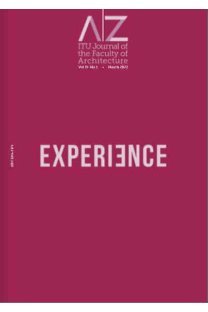Transformation of mental maps during urban reconstruction in the Tahtakale District considering safety and gender
İstanbul, a city with over 14 million people, is invaded by its own inhabitants every day. With the maps in their minds that have the borders drawn by them- selves, millions of vehicles, pedestrians, street animals are reaching from one point to another. During these changes, sometimes city fails to protect its original shape, yet sometimes manages to remain the patterns. Transformation of space is based on the economic and political backgrounds of the country and a new real-estate centered culture is forcibly applied. The isolating approach of politics is leaving traces on urban land. İstanbul, being a palimpsest city and a living organism, has been going through the most active phase of its history. But at the same time, lack of interest in urban esthetics and architecture has led many new problems. Individuals can only adopt and accept their social and physical environments as long as they’re able to give a meaning to it. But the extremist operations reflect on the memory as ruptures, and this causes an unclear future perception and lack of sense of belonging. Tahtakale District which has going through social and phys- ical changing phases is selected to be the case study area. Incidents of near past will be examined in a safety and gender perspective. For the inhabitants, urban land has become the crime scene for harassment; one of the main goals is to study how the change of mental maps will affect the future assumptions and individuals’ behaviors as well as their sense of belonging.
___
Akgün, A.(2014), Ayrışma - Ayrıştırma Temelli Mekansal Pratiklerinin Toplumsal Pratiklerle İlişkisi Üzerine Bir Çalışma, İdeal Kent, 12, 28-38.Aliağaoğlu, A. (2007), Davranışsal Coğrafyaya Bir Örnek: Öğrenci Merkezli Balıkesir Şehir İmajı, Elazığ Fırat Üniversitesi Sosyal Bilimler Dergisi, 17(1), 17-44.
Akış, T. (2009), Türkiye Mimarlık Akademisinde Mekân Algısı ve Bilimselleşme: 1970’lere Yeniden Bakış, Ankara Mimarlar Odası Yayını, Dosya 17, 17-23.
Aslan, Ş. (2007), Kent Üzerine Sosyolojik Düşünceler: Türkiye’de Son 30 Yılda Kentsel Değişim Süreci, İstanbul: İnşaat Mühendisleri Odası Yayınları.
Avar, A.A. (2009), Lefebvre’nin Üçlü – Algılanan, Tasarlanan, Yaşanan Mekân – Diyalektiği, Ankara Mimarlar Odası Yayını, Dosya 17, 7-16.
Bıyık, Z. (2011), Kamusal Mekânın, Kent Mekânından Soyutlanması ve Devlet Otoritesinin Yaratmış Olduğu Dokunulmazlık Algısının Bu Süreçteki Rolü, (Yüksek Lisans Tezi) Bilgi Üniversitesi, İstanbul.
Buzan, T. (2006) The Mind Map Book, London: BBC Active.
Erkan, N, Yenen, Z. (2010), Yerleşmelerde İmaj Analizi Konusunda Bir Yöntem: Kastamonu Örneği, Megaron Dergisi, 2010;5(2):67-81.
Göksu, S. (1986), Kentlerde Ortak Kullanım Alanları: Etkinlik Oranı Üzerine Ampirik Bir Araştırma, Planlama Dergisi, 86/1, 11-12.
Harvey, D.(2013), Asi Şehirler; Şehir Hakkından Kentsel Devrime Doğru, İstanbul: Metis Yayınları.
Jacobs, J. (1961), The Death and Life of Great American Cities, New York: Random House.
Keyder, Ç. (2000), İstanbul, Küresel ile Yerel Arasında, İstanbul: Metis Yayınları.
Karadağ, A, Turut, H. (2013), Üniversite Öğrencilerinin Kentsel Çevre Algısı Üzerine Bir Araştırma: İzmir Örneği, Coğrafi Bilimler Dergisi, 11 (1), 31-51.
Lynch, K. (1960), The Image Of The City, Cambridge: The MIT Press. Mutluer, N. (2008), Cinsiyet Halleri, Türkiye’de Toplumsal Cinsiyetin Kesişim Sınırları, İstanbul: Varlık Yayınları.
Penpecioğlu, M. (2013), Büyük Ölçekli Kentsel Projeler, Mekanın Üretimi ve Neo-liberal Hegemonya: İzmir Örneğinde Karşılaştırmalı Bir Araştırma, Megaron Dergisi, 8(2): 97-114.
Rittersberge, H, Ergin, N.B. (2009) Kentsel Yenilemeye Karşı Taban Direnişi: İstanbul, Güzeltepe Örneği, VI. Ulusal Sosyoloji Kongresi, Adnan Menderes Üniversitesi, Aydın.
Şengül, T. (2008), Kentsel Yeniden Yapılanma ve Yeni Kentleşme Eğilimleri Üzerine Bazı Gözlemler, 32. Dünya Şehircilik Günü Kolokyum Bildirisi, İstanbul.
Tekeli, İ. (2008), Türkiye’de Kent Yöneticileri/Kent Plancıları Kentsel Dönüşüm İçin Bir Ahlaki Çerçeve Oluşturmak Durumundadır, 32. Dünya Şehircilik Günü Kolokyum Bildirisi, İstanbul.
Social Development Department Conflict, Crime and Violence Team (2011), Violence in the City Under- standing and Supporting Community Responses to Urban Violence, Washing- ton, The World Bank.
Tunçel, H. (2009), Kentsel Mekânın Algılanması: Elazığ Örneği, Ankara Üniversitesi V. Ulusal Coğrafya Sempozyumu, Ankara.
Türksoy, Ö.(1986), Çevresel Psikoloji, Planlama Ve Kentsel Bütünleşme, Planlama Dergisi, 86(1), 13-17.
- ISSN: 2564-7474
- Yayın Aralığı: Yılda 3 Sayı
- Başlangıç: 2005
- Yayıncı: İTÜ Rektörlüğü
Sayıdaki Diğer Makaleler
Recording the landscape: Walking, transforming, designing
Memory layers, porosity and montage as representative interfaces of anamnesis and forgetting
Istanbul: A landscape in-between virtual and real
Civil aviation in Turkey in 1920s and 1930s: Büyükdere AEI facility
Evaluating the playground: Focus group interviews with families of disabled children
Sima POUYA, ÖNER DEMİREL, Sahar POUYA
Urban transformation through property-led regeneration: A case of building renewals in Istanbul
ELİF KISAR KORAMAZ, TURGAY KEREM KORAMAZ, ÖZLEM ÖZER
Reviewing Istanbul’s urban structure through a local retail shop: Neco Cornet Ice Cream Shop
From borders to boundaries: Istanbul Land Walls
